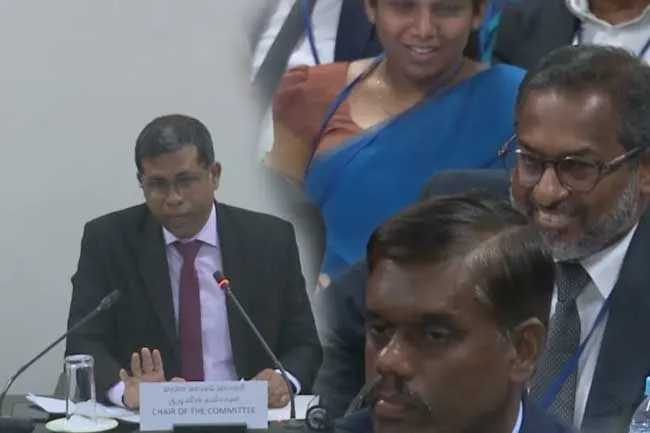By: Staff Writer
October 27, Colombo (LNW): The Committee on Public Enterprises (COPE) yesterday exposed serious concerns over the ownership structure and share allocations at Lanka Transformers Limited (LTL), a company originally created under the Ceylon Electricity Board (CEB) to support power sector operations but now operating as a privately held entity. The revelations have reignited debate over the blurred lines between state-owned and privatized enterprises in Sri Lanka’s energy sector.
LTL, incorporated in 1980, was formed as a joint venture between the CEB, which initially held a 70% stake, and a Scottish engineering firm owning the remaining 30%. Although established to manufacture transformers and electrical equipment for national utility projects, the company gradually transformed into a semi-private entity—raising questions about how public assets shifted into private hands over the decades.
COPE’s inquiry followed an earlier session in September, where concerns were raised about LTL’s connection to the CEB and the lack of transparency in its shareholding. The committee summoned LTL’s management to clarify how a portion of shares—originally allocated for employee welfare ended up being distributed among senior officials rather than the broader workforce.
During the hearing, COPE members questioned how 76% of the company’s shares, held under a trust, were transferred to 15 individuals, effectively consolidating control in a small group. LTL CEO Nuhuman Marikkar defended the distribution, claiming it was done legally at the company’s inception and that dividends have been consistently paid to these shareholders, including Chief Technology Officer H.D. Chaminda.
However, COPE members expressed strong concern that dividends from these shares were not returning to the public purse, despite LTL’s heavy dependence on CEB contracts and state resources. Given the company’s investments exceeding Rs. 10 billion, committee members demanded to know why public oversight mechanisms such as government audits—no longer apply to an entity originally established using public funds.
A tense moment arose when MP Chaminda Wijesiri questioned COPE’s authority to summon a private company. COPE Chairman Dr. Nishantha Samaraweera responded firmly, stating that LTL was being examined because of its direct link to CEB operations and public funds, adding that “when taxpayer money is involved, COPE has a duty to ensure accountability.”
The latest revelations have added fuel to ongoing controversy over the silent privatization of CEB-affiliated entities, where control gradually shifts to private hands without explicit government approval or parliamentary scrutiny. Analysts warn that such opaque transitions undermine public accountability and weaken the state’s control over critical infrastructure.
As COPE continues to probe LTL’s structure and funding, the investigation could set a crucial precedent for how quasi-private entities with state origins are governed potentially forcing a broader review of hybrid companies operating under the guise of privatization.
